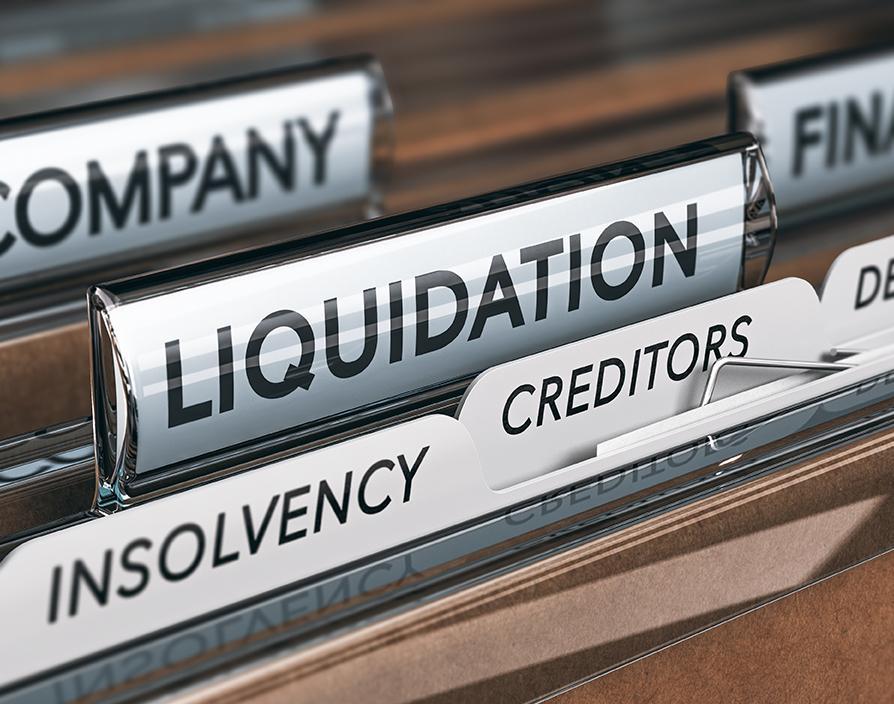Unknown Facts About Insolvency Practitioner
Unknown Facts About Insolvency Practitioner
Blog Article
Our Insolvency Practitioner PDFs
Table of ContentsInsolvency Practitioner Things To Know Before You Get ThisThe Ultimate Guide To Insolvency PractitionerThe Definitive Guide to Insolvency PractitionerSee This Report on Insolvency PractitionerThe Insolvency Practitioner IdeasIndicators on Insolvency Practitioner You Should KnowInsolvency Practitioner Things To Know Before You Get This
Bankruptcy is when responsibilities are above the value of the company, or when a debtor can not pay the financial debts they owe. A company can end up being bankrupt due to a number of situations that result in bad cash money circulation. When faced with bankruptcy, a business or individual can speak to lenders straight and restructure debts to pay them off.Insolvency can lead to insolvency procedures, in which lawsuit will certainly be taken versus the insolvent individual or entity, and properties might be sold off to repay exceptional debts. Company owner may get in touch with financial institutions directly and restructure financial debts into more manageable installations. Lenders are normally amenable to this strategy because they intend to be paid off and avoid losses, also if the repayment gets on a postponed schedule.
Rumored Buzz on Insolvency Practitioner
The proprietor produces a proposal describing exactly how the financial debt may be restructured making use of expense reductions or other strategies for support. The proposal shows creditors exactly how the service may produce sufficient capital for profitable operations while paying its financial obligations. Commonly, a forgiven financial debt may be considered income by the Irs (IRS).

The 25-Second Trick For Insolvency Practitioner
Business may end up paying big amounts of cash in damages and be unable to continue procedures. When procedures stop, so does the company's revenue. Absence of income results in overdue costs and financial institutions asking for money owed to them. Some business become insolvent since their products or solutions do not develop to fit consumers' changing needs.
Costs exceed revenues and expenses remain unpaid. Kinds of insolvency include cash-flow bankruptcy and balance-sheet insolvency. Cash-flow bankruptcy takes place when a business has the properties to cover their debts however they remain in the wrong form, such as property instead of fluid funds. Balance-sheet bankruptcy, on the various other hand, shows an absence of assets in any kind of type to cover financial debts.
The internal revenue service states that an individual is bankrupt when the overall obligations exceed total assets. A personal bankruptcy, on the other hand, is an actual court order that portrays how a financially troubled person or business will pay off their financial institutions, or exactly how they will certainly offer their properties in order to make the settlements.
What Does Insolvency Practitioner Do?

Understanding the aspects that can lead to insolvency, such as overspending, can assist you prevent insolvency and its repercussions.
Insolvency Practitioner Can Be Fun For Anyone
It is well recognized that directors and policemans of companies (and supervisors of limited responsibility companies) owe fiduciary obligations to their companies and their investors (or members). These fiduciary commitments are specified by state statutes and, though there are variations from state to state, they commonly consist of a task anonymous of commitment and a task of treatment.
The responsibility of care requires supervisors and policemans to work out diligence, to make enlightened decisions, and to act in excellent confidence so that their actions are in the very best passion of the firm. Past the extent of this discussion, some states allow these obligations to be restricted either by so noting in the organizational records or complying with various other needs.
What Does Insolvency Practitioner Do?
Most states define bankruptcy in 2 methods( 1) when a firm's liabilities come to be better than the amount of its assets or (2) when the business ends up being unable to pay its financial debts as they end up being dueand embrace both definitions (Insolvency Practitioner). The change in responsibilities happens due to the fact that when a firm is bankrupt, there is no value in the business past that owed to the company's financial institutions to ensure that the equity owners no more have a financial risk in the company
Beware concerning giving investors preferential treatment at the cost of financial institutions (e.g., accrediting and funding a returns or a supply redemption). Take care regarding favoritism in between courses of shareholders. Make affordable initiatives to discover all the truths before taking a particular training course of action; supervisors need to truly believe that any decisions made are in the ideal rate of interests of the firm in its entirety (i.e., decisions will certainly be reviewed in knowledge taking into account the impact of such activities on the company).
In any kind of bankruptcy or insolvency proceeding, repayments made to certain financial institutions at the expense of various other creditors can be clawed back, especially if there is some connection in between the firm and the lender. Consider recommending at a yearly stockholder conference (or any various other meeting of shareholders) a resolution attesting that all previous organization decisions and activities taken by the directors and police officers of the corporation were taken in great belief after a workout of sensible care.
Insolvency Practitioner for Dummies
Completely disclose any kind of individual or click this link organization partnerships with events beyond of purchases entailing the firm to stay clear of the appearance of a conflict of interest. In evaluating prospective fund raising transactions or a sale of properties of the distressed corporation, be mindful that these purchases may be inspected later because of any succeeding development of supervisors' fiduciary duties to consist of go to this website lenders.
Report this page